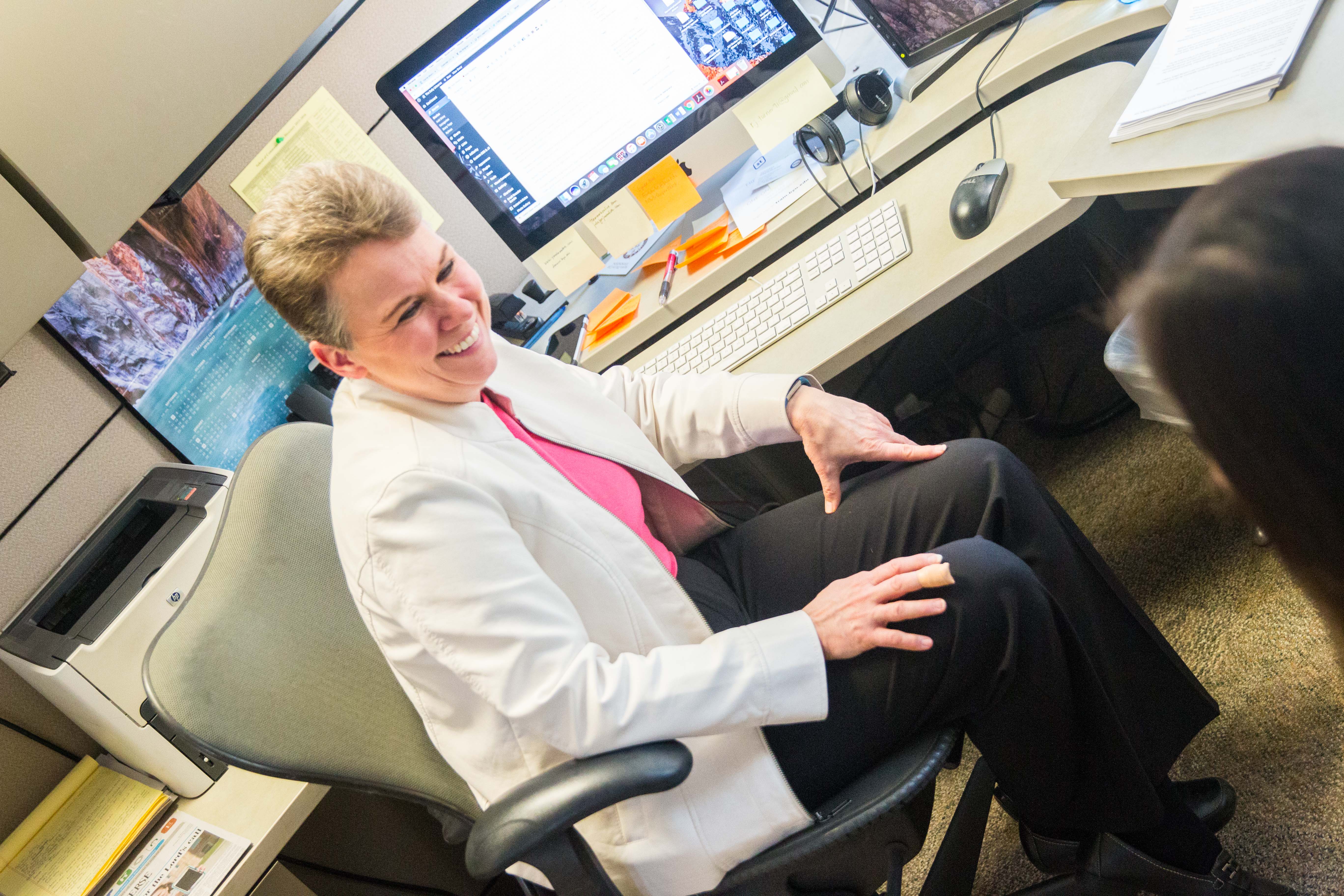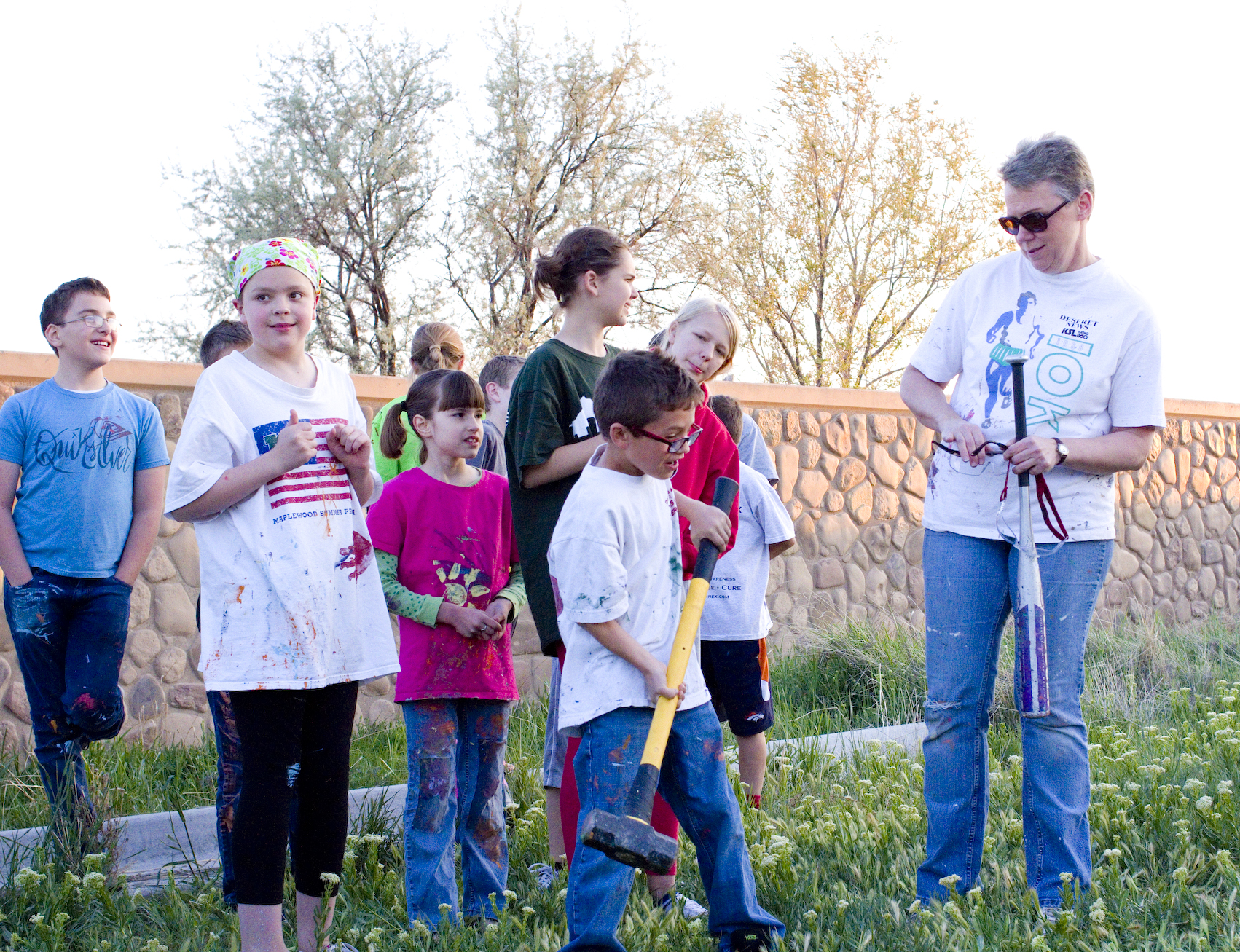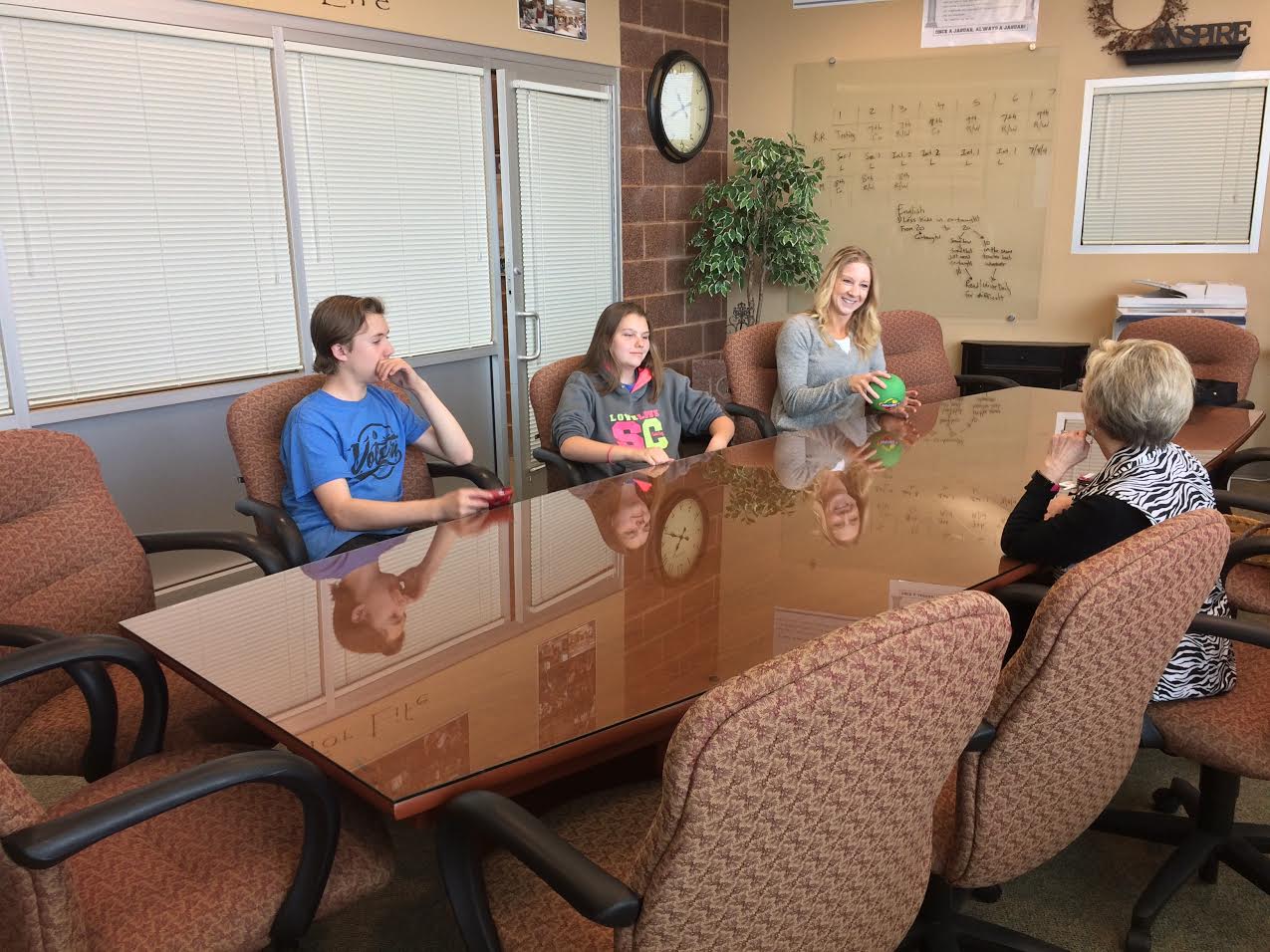
 BYU adjunct communications professor Carrie Moore, whose husband died in a plane crash 20 years ago, has turned heartache into hope by creating a nonprofit for grieving families.
BYU adjunct communications professor Carrie Moore, whose husband died in a plane crash 20 years ago, has turned heartache into hope by creating a nonprofit for grieving families.
Carrie met her husband, Bradley, on a blind date in high school. She said a friend set them up for the Sadie Hawkins dance.
“By the time I got home that night, I told my mother I had met the person I was going to marry,” Moore said.
She said Bradley then asked his cousin to ask Carrie to write to him on his mission. After Bradley returned home, he and Carrie were married and later had three children.

The Moore’s son, Stephen, battled leukemia twice from the time he was 8 to 10 years old. He survived the cancer after several months in the hospital and a bone marrow transplant, but Carrie said this experience had a huge impact on her family and was a very sobering time for them.
“I have told people many times that that experience prepared me to lose my husband and I didn’t know it,” Carrie said. “I don’t know that I would have survived losing him in a plane crash if we had not been through leukemia. It taught me what I could do, and that faith will get you through no matter what, and that God does watch out for us.”
Bradley worked as chief financial officer for Swire Coca-Cola. In January 1996, he was traveling with other company executives in a corporate plane to a sales meeting in Idaho when the plane crashed, killing all eight people on board.
Carrie said faith was a big component at her house in dealing with Bradley’s death. Although they gained comfort from having talked about what happens after death and their belief in eternal families, her family still struggled to cope with the loss.
She sought help for her family at the only children’s grief support center within her family’s proximity at the time, but said she soon found out it had a yearlong waiting list.
“My children needed help now, not a year from now,” Carrie said.
Her family also tried formal counseling, which she said her children absolutely rejected. She said she knew at that point she was pretty much on her own in terms of helping her children deal with Bradley’s death.
“I prayed a lot, and I read a lot, and I researched a lot,” Carrie said. “I determined within about six months of having lost him that I was not going to be able to find what I needed for my children, but I was going to make sure other families had it.”
Carrie began thinking about starting her own grief support center to provide for other families the kind of resource that would have benefited her own family in the loss of a loved one.
Carrie said as she came up with a plan to start her own grief support center, it was important to her to create an environment that would welcome people of all faiths. She said she knew from her time as a religion reporter and editor at the Deseret News that there had been a huge religious divide in Utah for decades.
“I was determined that that was something I was going to have an impact on because I didn’t see anything good coming out of it,” Carrie said. “I only saw divisiveness and bitterness and sometimes honestly hatred coming out of it.”
In preparation for creating this environment, Carrie trained as an interfaith chaplain by doing a yearlong residency at the Salt Lake City Veterans Administration Hospital after learning about the chaplaincy program on assignment for a story she was writing.
“The more I listened and the more I saw, the more I became convinced that that was what I needed to do,” Carrie said. “That was my training to open the grief support center because they were talking about all the things I’d been looking for in a traditional graduate program and couldn’t find.”
With this training and after being laid off from the Deseret News because of some changes the organization was undergoing, Carrie felt it was time to open her grief support center, which she named The Bradley Center after her husband.
The Bradley Center held an inaugural open house on Jan. 15, 2011, the 15th anniversary of Bradley’s death.

Bradley Center volunteer Valerie Wanlass said she got involved with the center after attending the open house and feeling an “incredible, beautiful feeling” there.
“I just thought it was such a beautiful thing that she was doing, wanting to provide for families what she wished she would’ve had for her own family going through that,” Wanlass said.
Steve Fidel, a longtime friend of Carrie’s who worked with her at the Deseret News and at The Daily Universe as BYU students, attended the open house with his wife. Fidel said he and his wife were impressed with the center’s business model and mission to create an inviting atmosphere for bereaved families.
“We were not at all surprised at what she had put together, but were pretty amazed at all of the elements and facets that The Bradley Center had — how complex it is,” Fidel said.
Carrie manages a team of 40 volunteers and has helped 600 individuals to date through her work at The Bradley Center. She said one of the center’s goals is to allow individuals who have lost a loved one to talk to others their age who are in a similar situation and express their thoughts and feelings in a safe environment.
Wanlass said she wishes everyone could have the valuable life skills she has learned through her training as a volunteer at The Bradley Center.
“Seeing these families with their eyes just shining with their faith through their tears, I think it’s just so beautiful the hope that they have that they can get through this,” Wanlass said.

The Bradley Center also supports grief groups for teens in Utah public schools. One of these groups meets at Orem Junior High School. The school’s counseling chair, Colette Casper, said the group has been an “immeasurable resource” for these students.
“While it is difficult for adults to deal with the death of a loved one, it is even harder for teenagers,” Casper said. “These students are now healing and thriving as they learn and embrace the tools that will benefit them for a lifetime.”
A few years after Carrie opened The Bradley Center, Fidel reached out to Carrie asking if she’d be interested in becoming a newsroom manager at The Universe.
Fidel said he wanted Carrie’s skills at The Universe. He also knew Carrie’s work at The Bradley Center was important to her and proposed an arrangement in which she could split up her time and work in both places.
Carrie agreed to take the position on the condition that she could mentor students in the newsroom and continue to teach classes, which she had enjoyed doing for several years at the BYU Salt Lake Center. Between The Bradley Center and BYU, Carrie said she thinks she has “the best job set of responsibilities in the whole world.”
Fidel said Carrie has impacted students in every way he imagined and more. He said she is a “tremendous resource” to students that extends beyond their educational and professional pursuits.
“Carrie has done a very good job at taking an unimaginably complicated situation, living through it and making something out of it without it becoming a ‘poor me’ kind of situation. She handles everything she does so professionally,” Fidel said. “That doesn’t mean it’s always easy, but the way she manages it is pretty incredible.”




